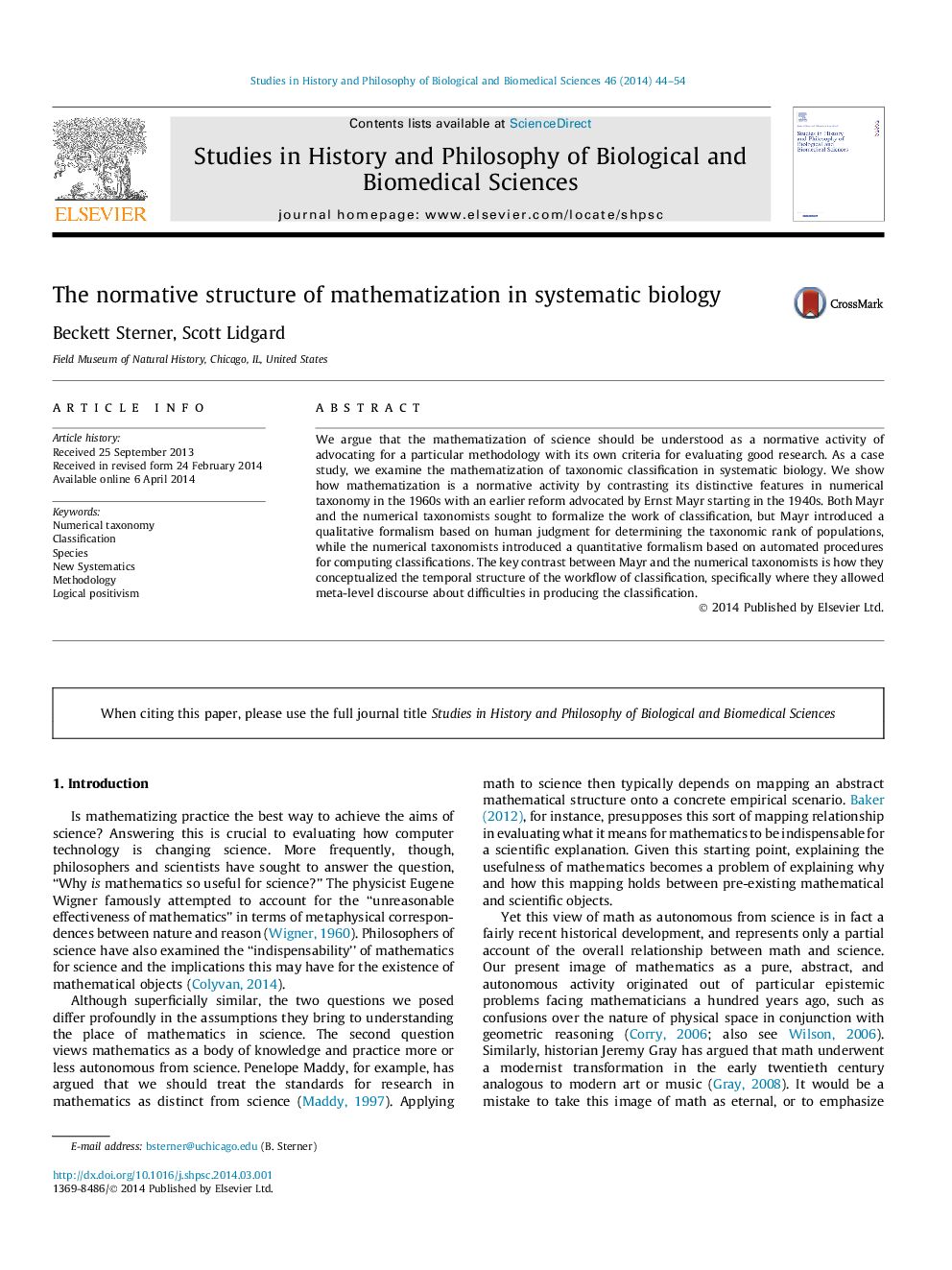| Article ID | Journal | Published Year | Pages | File Type |
|---|---|---|---|---|
| 1161809 | Studies in History and Philosophy of Science Part C: Studies in History and Philosophy of Biological and Biomedical Sciences | 2014 | 11 Pages |
•Mathematization transforms the way scientists themselves judge success and failure.•Mathematization should be studied as a normative program for institutional change.•We compare Ernst Mayr’s methodology for classification to numerical taxonomy’s.•We analyze methodological theories as tracking devices for regulating practices.•Introducing math altered how biologists managed failures arising in classification.
We argue that the mathematization of science should be understood as a normative activity of advocating for a particular methodology with its own criteria for evaluating good research. As a case study, we examine the mathematization of taxonomic classification in systematic biology. We show how mathematization is a normative activity by contrasting its distinctive features in numerical taxonomy in the 1960s with an earlier reform advocated by Ernst Mayr starting in the 1940s. Both Mayr and the numerical taxonomists sought to formalize the work of classification, but Mayr introduced a qualitative formalism based on human judgment for determining the taxonomic rank of populations, while the numerical taxonomists introduced a quantitative formalism based on automated procedures for computing classifications. The key contrast between Mayr and the numerical taxonomists is how they conceptualized the temporal structure of the workflow of classification, specifically where they allowed meta-level discourse about difficulties in producing the classification.
